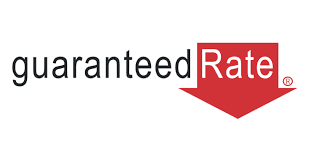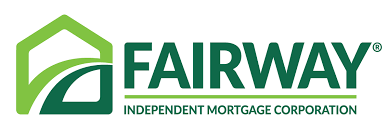Lender LendingTree rating and “best of” category Lender review


Refinance loansRead our review


VA loansRead our review


Jumbo loansRead our review


Online mortgage experienceRead our review


FHA loansRead our review


Home equity loansRead our review


Mortgage loan varietyRead our review
![]() Learn more about how we chose our list of the best mortgage lenders.
Learn more about how we chose our list of the best mortgage lenders.
The regulations and laws for buying a home vary from state to state, as do the taxes buyers and homeowners will need to pay. Here’s what you need to know about buying a home in Connecticut:
State law requires sellers to fill out a property disclosure form to reveal issues that might affect a home’s value or marketability. The form asks for general information and details on specific parts of the home, such as walls and foundation, improvements and internal systems for water, sewage, heating and electricity. The disclosure form encourages sellers to explain potential issues in detail and attach relevant documents.
According to Connecticut law, sellers are required to give buyers the form before they sign a contract: Otherwise, buyers are entitled to a $500 refund at closing. Meanwhile, state law also requires licensed real estate brokers to provide buyers with any significant information they have on the home’s condition.
Connecticut is a judicial foreclosure state, which means lenders must work with a court before foreclosing on a consumer’s home.
As a buyer, you should also know that Connecticut is an equitable distribution state. This means that in the event of a divorce, a court will be required to divide assets, including real estate, and debts among spouses fairly, but not necessarily with a 50/50 split, as is the case in community property states. Instead, Connecticut courts consider factors such as the length of the marriage, reason for the divorce and the age and earning potential of each spouse.
In Connecticut, attorneys typically attend home closings because state law requires them to verify the title is valid and handle anything else that might qualify as a legal matter. This is different from so-called escrow states, which allow an escrow company or title insurance firm to handle the closing of a home sale.
In Connecticut, any property sale over $2,000 requires the seller to pay a transfer, or “conveyance,” tax that allows the property to change hands. The tax is collected both by the state and local municipality, and it now ranges from 1% to 1.75% of the sales price, depending on the property and its location.
As a homeowner, you are responsible for paying any property taxes due annually on your home. According to Tax-Rates.org, Connecticut has one of the highest property taxes in the country, with a median tax of $4,738 for a $291,200 home.
Tax rates vary by county, so if you’re thinking of buying in Connecticut, check with the tax assessor in the area to get your actual rate. Residents in Fairfield County, along the New York border, pay more taxes than the rest of the state — $6,221 on average. By contrast, residents in Windham County, in the northeastern corner of the state, pay the lowest, an average of $2,970 per year.
As a Connecticut homeowner, you may be able to trim your annual property tax bill through some of the tax exemptions, credits or abatements (actual reductions in tax due) offered statewide or through cities and towns. For example, the state offers a tax credit for low-income seniors and disabled people and tax exemptions for veterans and others who are legally blind or disabled. Check with your local municipality for more information.
The conforming loan limit for a single-family home in most of Connecticut is $484,350, which is the limit in place for most of the U.S. Only one county — Fairfield County — has a higher conforming loan limit of $601,450.
A conforming loan limit represents the maximum amount borrowers can receive for a conventional mortgage that Fannie Mae and Freddie Mac, two government-sponsored entities, are willing to insure. With a conforming loan, buyers who have good credit usually get the best interest rates. If you’re looking to buy a very expensive home — with a mortgage that goes over the limit in your area — you’ll most likely need a jumbo loan. These loans often come with higher interest rates and stricter lending qualifications.

The Connecticut Housing Finance Authority (CHFA) offers residents 11 statewide homebuyer programs with various features, including mortgages at below-market interest rates and down payment assistance. Some CHFA programs are targeted toward specific types of buyers, such as veterans and military members, teachers, police officers and those who are disabled. Help is also available for tenants of public housing or those looking to purchase a manufactured home.
Some CHFA programs are highlighted below; go here to see details on every program. Meanwhile, if you’d like to know more about local homebuyer programs in Connecticut — such as those offered by cities and towns — visit this website from the U.S. Department of Housing and Urban Development (HUD).
These programs offer conventional mortgages with low mortgage insurance costs and below-market interest rates to low- and moderate-income buyers. Borrowers automatically qualify for down payment assistance in the form of a second mortgage of at least $3,000, which typically is provided at the same interest rate (see the description for the DAP loan below). The HFA Preferred Loan may be used to buy an owner-occupied, multifamily home.
Who qualifies:
This program offers government-insured mortgages with below-market interest rates and down payment help through the DAP loan described below.
Who qualifies:
This program offers a low-interest second mortgage to help pay down payment costs. The loan amount must be at least $3,000 but no more than the minimum down payment required for your home.
Who qualifies: